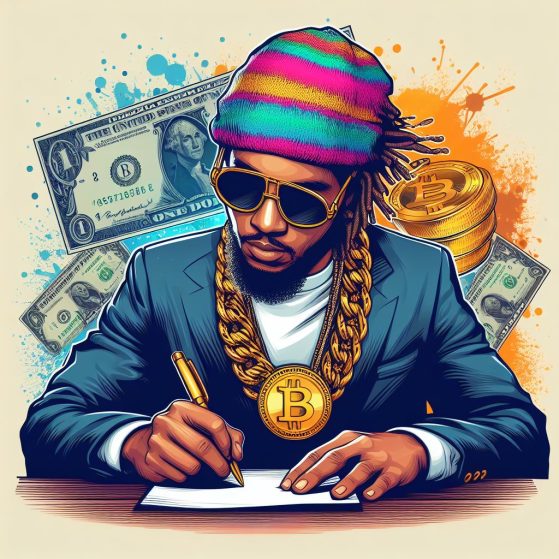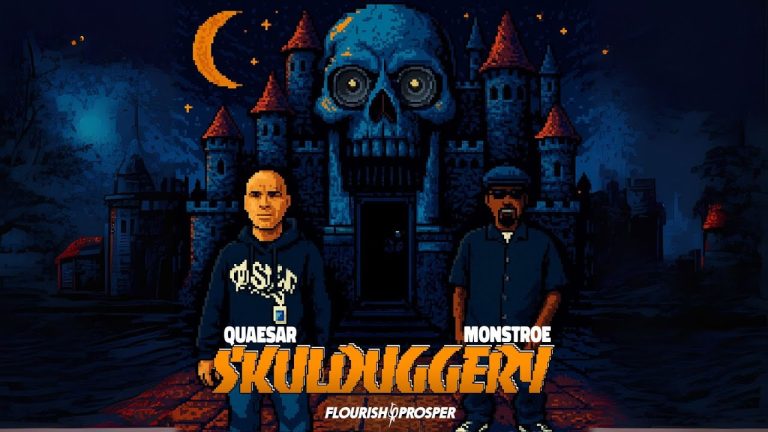Understanding Blockchain and Its Significance
Demystifying Blockchain Technology
Blockchain, at its core, is a type of database used to store information in blocks that are chained together. Each new piece of information constitutes a fresh block added to the chain in chronological order. What makes blockchain unique and secure is that once a block has been added, it’s practically impossible to change or remove it. As such, it provides an immutable, incorruptible digital ledger where transactions can be transparently recorded, publicly audited, but never altered.
The Relevance of Blockchain
The significance of blockchain extends far beyond its initial application- cryptocurrencies like Bitcoin. It’s recognized for its unmatched potential to bring transparency, security, and efficiency to various industries. In particular, the music industry stands to significantly benefit from the blockchain revolution. Blockchain’s inherent features such as transparency, disintermediation and smart contracts can resolve various issues plaguing this sector, including royalty distribution, copyright infringement, and lack of standardization.
Smart Contracts And Their Role
One pivotal feature of blockchain technology crucial to understanding its impact on the music industry is the concept of smart contracts. Smart contracts are self-executing contracts embedded with the terms of the agreement directly written into code. They ensure that payments are automatically triggered once specific conditions are met, thereby reducing disputes over payments. With blockchain adoption, a smart contract could immediately distribute royalties to artists each time their music is streamed or purchased, revolutionizing traditional distribution systems.
Blockchain in Music: An Overview
Understanding Blockchain’s Role in Music
Blockchain technology holds the potential to bring a significant shift within the music industry, revolutionizing the way we distribute and consume music. At its core, blockchain is a secure, transparent, and decentralized database that records transactions across many computers. This ensures that transaction records are not in the control of a single entity and are secure from tampering or revision.
In the context of the music industry, blockchain offers an innovative platform for artists to distribute their music directly to their audience, bypassing traditional intermediaries like record labels and streaming platforms. It presents a more equitable model where artists can have full ownership and control over their work, allowing them to earn a greater share of revenue compared to conventional distribution channels.
The Benefits of Blockchain in Music

One key benefit of blockchain lies in the transparency it provides. One of the major challenges musicians face today is tracking royalty payments accurately. Blockchain technology presents a solution to this, offering a transparent system where every transaction (in this case, song stream or download) is recorded. This means artists can easily track and verify royalty payments due to them, ensuring fair compensation.
Moreover, blockchain technology allows for the creation of “smart contracts”. These are self-executing contracts with the terms of the agreement written into code. In the musical context, smart contracts could automate the process of royalty distribution, effectively eliminating the need for intermediaries and reducing delays in payment.
Potential Challenges and Future Prospects
While blockchain holds immense potential, implementing it in the music industry does present some challenges. Adoption requires considerable technological understanding, which may be a barrier for many in the industry. There’s also the issue of scalability and the sustainability of the energy-intensive proof-of-work mechanisms that many blockchains currently rely on.
Nevertheless, if these hurdles can be overcome, blockchain has the potential to democratize the music industry, streamline royalty distribution, and give artists more control over their work. It is a promising development that could completely redefine the way we understand music distribution and consumption in the not-too-distant future.
Revamping Music Distribution with Blockchain
Transforming Music Delivery Systems
Traditional music distribution has always faced a multitude of challenges, from piracy to lack of transparency. The advent of blockchain technology promises to mitigate these issues, radically transforming the way music is distributed.
Blockchain is a decentralized and secure digital ledger system where transactions are recorded publicly. This technology fits beautifully into the music industry, influencing not only the way music is distributed but also how musicians and rights holders are compensated.
With blockchain, music can be encoded and stored securely, reducing the risk of piracy. Blockchain’s transparency ensures all stakeholders in the production chain, including artists, record labels, and distributors, can see how music is being consumed and by whom—providing a fair and transparent revenue model.
Driving Fair Compensation in The Music Industry
A major challenge in the music industry is ensuring fair compensation for artists and rights holders. The opaque nature of traditional music distribution often leaves artists in the dark about how their art is being used and the revenues generated.
Blockchain technology can change this by creating a more transparent and equitable system. With blockchain, each song can have a unique ID that indicates who owns the rights. Every time a song is played or downloaded, the transaction can be recorded on the blockchain. This allows artists and rights owners to track the use of their content accurately.
Smart contracts, powered by blockchain, also increase flexibility in defining how and when a music publisher should be billed or paid. These programmable contracts automatically execute once certain predefined conditions are met, eliminating intermediaries and ensuring artists and rights owners are paid immediately and fairly.
Enabling User Engagement and Innovation
Beyond improving how music is distributed and artists are compensated, blockchain can also enhance fan engagement and promote innovation. Fans could potentially interact with their favorite artists directly through blockchain platforms, buying merchandise or tickets without dealing with intermediaries.
Moreover, blockchain opens doors for fresh business models in music distribution. Technologically savvy artists could tokenize their albums, offering fans unique access to content or experiences via blockchain tokens. This not only helps artists finance their projects but also brings them closer to their audience.
In conclusion, blockchain technology can dramatically revamp music distribution, ensuring a more fair, transparent, and innovative system. It’s a game-changing innovation that heralds a new era for the music industry.
Case Studies: Successful Implementations of Blockchain in Music Industry
Imogen Heap: Establishing the Mycelia Creative Passport
One of the most notable cases in the music industry harnessing the power of blockchain is that of Grammy-winning artist Imogen Heap. Heap started a blockchain project called “Mycelia,” which includes a proposition for the “Creative Passport.” This digital identity standard allows musicians to certify their identities and works, enabling seamless transactions and interactions on various platforms. Through this technology, artists receive faster payments, get credited accurately, and have control over how their compositions are used. By merging the blockchain’s transparency with the music industry’s complexity, Heap has pioneered a new way for musicians to assert their rights while doing business.
Björk: Revolutionizing Music Sales
The Icelandic superstar, Björk, also managed to successfully implement the blockchain within her music distribution strategy. In partnership with British startup Blockpool, she has made her 2017 album “Utopia” available for purchase via four different cryptocurrencies, including Bitcoin, Litecoin, Dashcoin, and AudioCoin. The incorporation of blockchain not only changed the way Björk could sell her music but also enabled fans around the world to participate in her music regardless of traditional banking status. This approach also paved the way for a reward program for active fans, distributing crypto tokens based on their level of engagement.
eMusic: Enhancing Transparency and Fairness for Independent Artists
Blockchain’s transformative power has been felt beyond individual artists. One notable case is eMusic, one of the first digital music stores, which adopted blockchain technology to ensure an equitable distribution of income to independent artists. Their platform provides a transparent and efficient process for artists to retain up to 90% of their sales revenue and receive payment instantly – a stark contrast to traditional models. With the decentralization of data, eMusic empowers artists by giving them control over their work and an unprecedented level of transparency in transactions.
Challenges Faced in Adoption of Blockchain in Music Distribution
Technological and Infrastructural Barriers
The adoption of blockchain in music distribution is not without its fair share of technological and infrastructural challenges. The most glaring of these is the lack of widespread understanding and knowledge about the technology. Many people involved in the music industry still have limited knowledge about what blockchain is, how it works, and the potential benefits it can bring to their business. This information gap significantly hampers the uptake of blockchain. Additionally, there are substantial infrastructure requirements needed to adopt blockchain technology, which many small and medium-sized enterprises cannot meet due to scarcity of resources.
Legal and Regulatory Concerns

Another hurdle that impedes the adoption of blockchain in music distribution is the legal and regulatory concerns surrounding the use of such technology. For blockchain to work effectively in music distribution, copyright laws need to be clear and enforceable across borders. However, differences in copyright laws across countries can create confusion and uncertainty. On top of that, since the decentralization nature of blockchain eliminates the need for intermediaries, questions about legal liability and dispute resolution are yet to be addressed comprehensively.
Scalability and Sustainability Issues
One more challenge lies in scalability and sustainability issues associated with blockchain technology. Blockchain transactions often consume significant amounts of energy which leads to environmental concerns. Moreover, as the number of transactions on a blockchain increases, the time required for processing each transaction escalates, slowing down the system. This bottleneck effect poses a significant challenge, especially in an industry like music where large volumes of data are shared and downloaded every second. Therefore, before blockchain can be fully integrated into the music distribution landscape, these sustainability and scalability issues need to be resolved.
The Future of Music Industry with Blockchain
Blockchain’s Impact on Music Distribution
The music industry, once mainly governed by large record companies, is noticeably experiencing a paradigm shift with the incorporation of blockchain technology. Blockchain advances streamline the distribution process and empower artists by eliminating intermediaries and creating direct artist-to-consumer channels. This means more control for artists over their music and potentially greater earnings as they receive payments directly from their audience.
Transparent Royalty Payments with Blockchain
On the financial side, blockchain’s transparent and immutable nature is poised to enhance royalty payment processes to ensure that artists and rights owners are adequately compensated. Several blockchain platforms are already being designed to enable instantaneous and transparent royalty distributions. As soon as a song is streamed or downloaded, the payment could be immediately split according to the pre-agreed percentages and distributed to all parties involved. This level of transparency could significantly reduce disputes over royalty payments and give artists better visibility into their earnings.
Decentralization: A Game-Changer for Artists
Moreover, the decentralization aspect of blockchain holds great potential for leveling the playing field in the music industry. Artists could utilize blockchain-based platforms to publish their music, set their pricing, and have full control over their intellectual property rights. This gives rising artists a fighting chance against the traditional corporate structure, increasing diversity and innovation in the music industry.
In essence, blockchain has the potential to transform the future of the music industry with its decentralized, transparent, and secure technologies. Its adoption could mean a more equitable music ecosystem where artists are rewarded fairly for their work, fans can connect directly to their favorite musicians, and creativity can flourish without unnecessary restraint.
Conclusion: Is Blockchain a Game Changer for Music Distribution?
Revolutionary Potential of Blockchain in Music Distribution
There is no doubt that the incorporation of blockchain technology holds a transformative potential for the music distribution industry. The technology, characterized by its decentralized nature, transparency and security, can provide a more direct mode of exchange between artists and fans. The elimination of intermediaries would not only expedite the process but also ensure that artists receive a more equitable remuneration for their work.
Challenges and Criticisms
However, like any significant disruption, blockchain technology in music distribution also faces considerable challenges. The primary issues revolve around scalability, acceptance, and regulation. Broad acceptance and understanding of this technology by artists, consumers, and industry stakeholders are crucial, yet currently limited. Regulatory uncertainties also need to be addressed to ascertain the viability and legality of using this technology.
The Future Outlook
Despite these challenges, the prospective benefits of employing blockchain technology in music distribution are indeed promising. Several startups are already exploring various applications of this technology within the industry, indicating a positive trend towards adoption. It may not happen instantly, but with continuous advancements and discussions to address current limitations, blockchain could well be a game changer in redefining the traditional architecture of music distribution. It is an exciting time to witness how this revolution unfolds in the coming years.
Looking for a trusted and knowledgeable agency to help market your music career?
Contact us at + 1 626 872-5151 or info@flourishprosper.net
Or Checkout our website at flourishprosper.net




